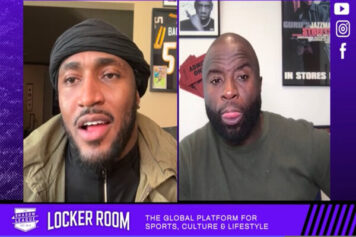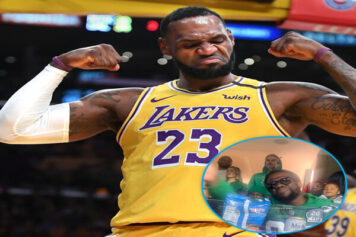This is how one call can control the direction of a entire series: The third foul on Mike Conley Jr. was called with 4:56 left in second quarter of Game Two with Memphis only down by 3. The call forced Conley Jr. to have to sit out the rest of the half.
Bill Kennedy made the call.
Conley never touched Gary Neal, who drew the phantom foul. Video replay proved the call was bad. In 100 seconds, the Spurs went up 11. The Grizzlies failed to score after Conley Jr. left the game. Zero points in the last five minutes (with the exception of a free throw made by Jerryd Bayless with 0.5 left).
Finished the half with 31 points. Down by 15.
Even ESPN analyst Jeff Van Gundy used that call/foul as an example to sell announcing partner Mike Breen on why there should be a challenge rule in the NBA (each team should get one challenge per half in Van Gundy’s fantasy).
Although the Grizzlies eventually caught up with a 15-2 run in the fourth quarter and forced an overtime, the gap they had to close because of the phantom call that took their point guard and offensive coordinator out of the game made it a virtually impossible hurdle for them to Felix Sanchez.
If we’re going to get deep with this, we could refer to that call as the tipping point. The moment that caused Memphis to spiral. Because, in all honesty, the Grizzlies never actually recovered from it. The call may not have been the reason they were Swifer’d by the Spurs, but it was the cause for the internal bleeding.
It’s the anatomy of a bad call. The breakdown of how one inaccurate call can change the direction, arch, landscape, trajectory of a game – of a series.
It seems as if every time during the playoffs/post-season of the the NBA, MLB and NFL, the refs and certain calls they make or don’t make seem to take center stage. We spend hours as disgruntled fans and connoisseurs of sports talking about a legitimately bad call a ref or umpire made, yet we don't often “blame” the outcome of a game on that call.
In the media, we are almost handcuffed into not making the refs/umps and the calls they make a storyline. Taught to approach the subject as head coaches do, we comment and write around the issue, dissecting each game whole instead of thoroughly breaking down what one call can lead to and the power it can have.
Take the non-foul call on Dwyane Wade with 0:02 left in OT of Game 1 that sent Paul George to the line for three free throws that gave the Pacers a one-point lead.
Wade never touched George. There was no foul.
There were other detrimental variables, such as George overplaying LeBron James on the final inbounds pass; Pacers coach Frank Vogel deciding (even after watching LeBron make a driving lay up to give the Heat a one-point lead eight seconds prior to the final play) to not have Roy Hibbert in the game to protect the paint; or George simply not grabbing James and fouling him after he got by him and making James earn the game from the free throw line instead of having free reign to an open, defenseless basket to score the winning points. but, if those don’t come into play then that Jason Phillips call would have unequivocally been the direct reason the Pacers win the game and possibly go up 2-0 in the series before they even played a home game.
More press and attention and commentary was given to the retroactive, two-day late flagrant foul charged to Wade on his apparently “inadvertent” elbow to Lance Stephenson's head in Game 2. Yet, a jacked up, inexcusable call in Game 1 almost cost the defending champs a game and put them two seconds away from being in a hole possibly too insurmountable to climb out.
No one looked at the impact the call could have had. No one examined its potential. And in not doing so, no one is held accountable for putting playoff games and, in this case, the NBA Conference Finals, in the balance.
But because calls like these have yet to effect the final result of any game (yet), no one is facing any of the consequences that should come when bad calls have the license to have such great impact.
Trust this: Had Miami won Game 4 after that botched, screwed-up, “how did the score keeper and all three referees” miss, 24-second shot clock violation call — you know, the one that led to a four-point swing, that led to Lance Stephenson picking up his fifth foul, that led to a 14-2 Miami run early in the fourth quarter, that led to Charles Barkley admitting afterwards that it “woulda been huge if the Pacers woulda lost this game” over that call – something inside the offices of Stern, Silver and Jackson probably would have had to be done. But since — like it seems to happen so often in these NBA playoff games – the final score and eventual outcome of the game was not influenced by the call… well, it’s just on to the next one.
Look, no one is expecting refs or officials to be perfect, we’re just expecting them to not make egregious mistakes. The point has always been made that when a ref is doing his/her job we’re not supposed to know or notice they are there. It seems too often (for too long) we have become familiar with them on a first name basis.
Joey. Tony. Scott. Bennett. Marc. Dan. Ron. Monty. Eddie F.
Unfortunately we know who they are. Not that they specifically have made bad calls that have altered the course of games and/or series in the past, but it’s getting to the point that at every NBA game – especially during the playoffs where the rotation of officials shrinks the same way coaches shrink their benches and player rotations – we watch games and see who’s calling them and say, “I know that dude.”
Back in the day (1994, to be exact) Hugh Hollins made a call. The anatomy of that call still resonates almost twenty years later. Hollins made a call that to this day people say is the reason the Chicago Bulls either didn’t four-peat or possibly win eight chips in a row instead of just three-peating twice.
The call was so “wrong” that Phil Jackson once compared the call to the one that caused the USA to lose the gold medal to Russia in the 1972 Olympics.
"Have I ever seen a single call make a difference like that?" Scottie Pippen said years later about being the person to whom the foul was assessed. "No. Never ever. It cost us the whole series."
Luckily there haven’t been many calls that have grown to have such historic value. At least not in the NBA. The NFL has had it’s share. The “tuck rule” call in the 2002 divisional playoffs that led to the New England Patriots eventually winning Super Bowl XXXVI, and the “end of the replacement refs” call in Week 3 of last season that finally put to rest the referee lockout can be bookends to a few “tragic” calls that have altered games. But with the NBA Finals less than 10 days away and the Heat/Pacers series as tight as it has been so far, there is still time for something “tragic” to happen in the games left to be played.
As long as there’s a whistle, there’s a way.
That’s the realistic mentality we’ve been forced to live with and accept, while the reality of what really goes on on-the-court remains selective denial.
No accountability, no foul.
As a ref once told me, their missed calls aren’t inaccurate, they just sometimes happen to be false-positive.



